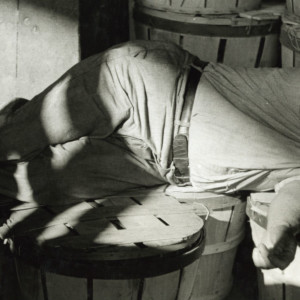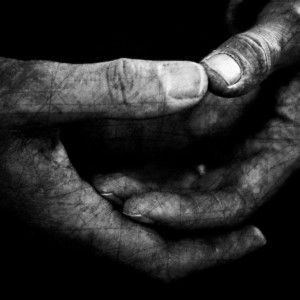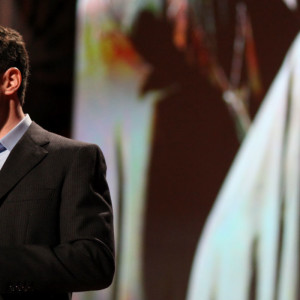How do you say that your grandfather has died? It’s not easy to state. It isn’t like saying “I had chicken for lunch,” or “the Cubs lost again last night.” The statement is gloomy and most of us would simply rather not say or hear it, but he did die. He is not going to create any new memories, or help others create them. He’s just gone.
This isn’t my first experience with death, but this time it was up close and personal. I spent almost seven months living with Pops leading up to his death and saw him every day. Death came slowly, but not painfully. I don’t think Pops wanted to live any longer, though he never said that explicitly. I’m telling you this so you won’t feel sorry for him, which is illogical because he’s dead, but people seem to do that anyway. Pops didn’t suffer and he was able to die in his home, which is what he wanted.
I observed many strange things in the weeks prior to his death and the days since. Family that previously visited rarely if at all suddenly began appearing with great frequency. It seemed as if they were trying to satisfy an unspecified quota, getting all of their time in at the last minute. I would suggest that this is a terrible idea. People are simply in no condition to reminisce when they are dying, and even if they are able to, they would usually rather talk about something else. Pops very rarely brought up the past himself, preferring to ask us about our lives, discuss the weather or local goings on.
Dying is not an easy thing to do, even if everyone can do it. My grandfather didn’t leave behind any pearls of wisdom that I am aware of. He didn’t have any last requests. During his last few days he was unaware of his location and spoke to ghosts from his past. He rarely recognized anyone, and was completely unconscious for most of the day of his death. I was glad that I had time to talk with him before this. More than anything, I was happy just to have been with him – to experience my grandfather as he was at this time in his life.
As he died my family was very somber and there was much wailing and praying. All of his sons and daughters are Christians, and they each in turn commented on how he would soon be in heaven with grandma and how they would be playing golf again and all would be as it was here on Earth. It was all surreal to me, a person who doesn’t believe as they do that when you die the most important part of you travels on to eternal glory (or damnation). This clearly brought them comfort though, which was contradicted by their crying. Surely if a person is going to the most wonderful place imaginable you wouldn’t cry for them – you would rejoice! This must mean that on at least a subconscious level they didn’t completely believe his final destination would be heaven, or at least they weren’t positive. As we all do, my aunts and uncles simply realized that their loved one was gone from their lives and would never return, and that mad then sad.
As for me, I haven’t cried yet. I haven’t really been sad. There was never any question that he, as all of us, would die. He didn’t seem to fear death – he wasn’t in pain. His life is simply over. My grandfather has died, but before that final act, he lived. For 82 years he laughed, cried, ate and slept. He walked down streets and loved his family and did all of the other things that prove we’re human. All around me I see people grieving in their own ways. Without religion you must look at death in the harsh reality in which it exists. Dogma doesn’t alter this reality, it only serves to complicate it. I see no reason to shed a tear because he did the most human thing of all. If it is true that we cry for the dead because we miss them, then thinking that they are in another place should not console you. If we mourn because they are no longer alive, an afterlife won’t bring them back. The idea that we might see them again in heaven would be appealing to those who didn’t feel as though they spent enough time with the person during their life, so it seems that the best thing to do is to make the most of the present. It’s no coincidence that the word is synonymous with gift.





Frankie:
You posted your comment as a trackback – would you mind asking your question here, so everyone can share in the discussion?